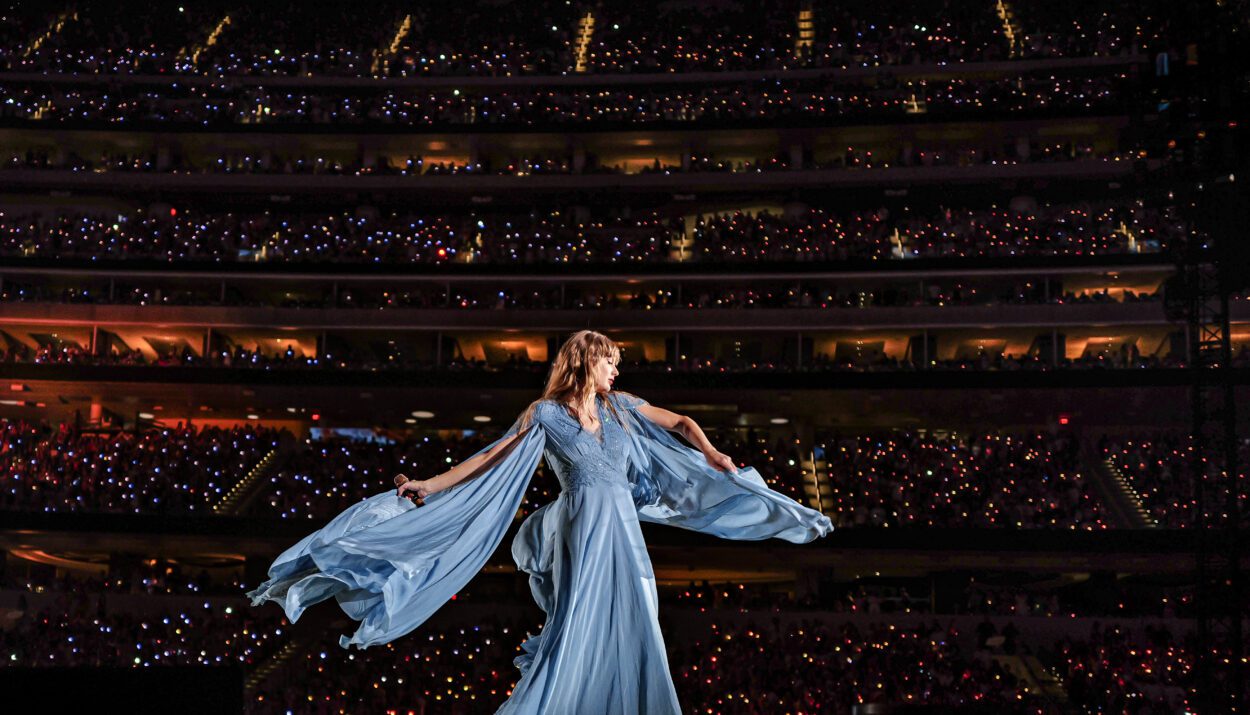- Taylor Swift’s record-shattering Eras Tour is continuing to supercharge local economies as it enters its U.K. leg.
- The economic impact could be enough to defer a possible September interest rate cut from the Bank of England, investment bank TD Securities said in a note Friday.
- “Swiftflation” or “Swiftonomics” refers to an uptick in consumer spending, particularly on hotels and restaurants, around the singing sensation’s tour dates.
Taylor Swift’s record-breaking Eras Tour continues to boost consumer spending as it reaches the U.K., potentially affecting the Bank of England’s (BoE) fight against inflation. Investment bank TD Securities suggests the economic impact of Swift’s tour might delay a September interest rate cut.
Thousands of fans will attend Swift’s final U.K. dates in London this August, with TD Securities noting that the surge in hotel prices during her tour could add as much as 30 basis points to services inflation. This temporary spike might influence the Monetary Policy Committee (MPC) to hold off on rate cuts in September.
The BoE, which aims to lower its bank rate from 5.25%, is expected to make a decision in August, with economists and financial markets predicting a cut by September. However, Swift’s tour could skew inflation data, prompting the BoE to reconsider its plans.
Swift’s concerts have had significant economic impacts, with terms like “Swiftflation” emerging to describe increased spending on hotels, flights, and restaurants. Edinburgh reported an estimated £77 million boost to its local economy from her concerts, while Barclays Bank projects the entire U.K. tour could add £1 billion to the British economy.
The BoE will meet next Thursday to discuss its interest rate decision and future inflation outlook.










